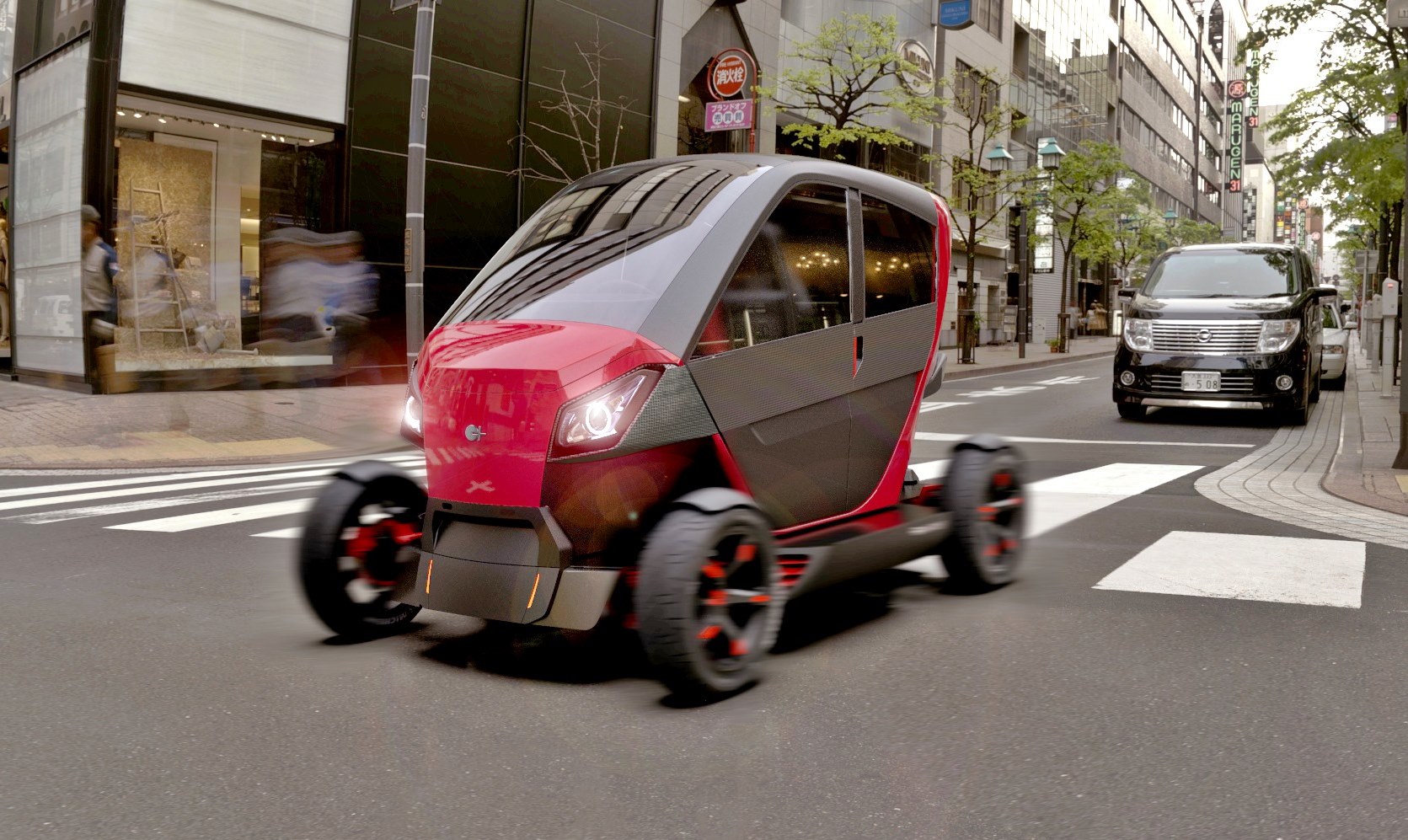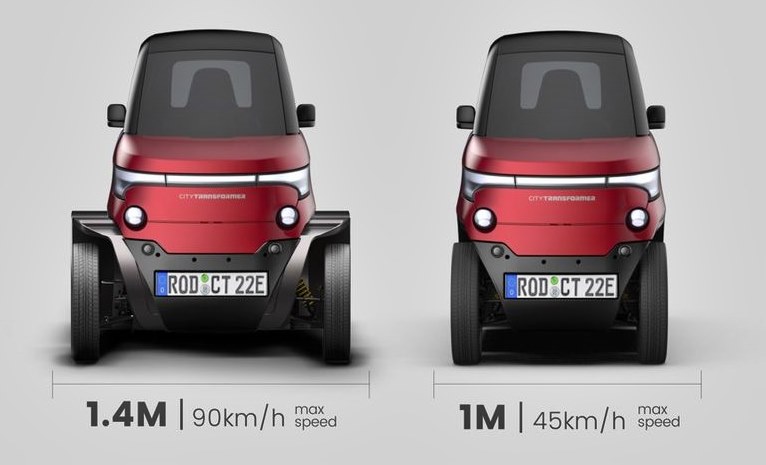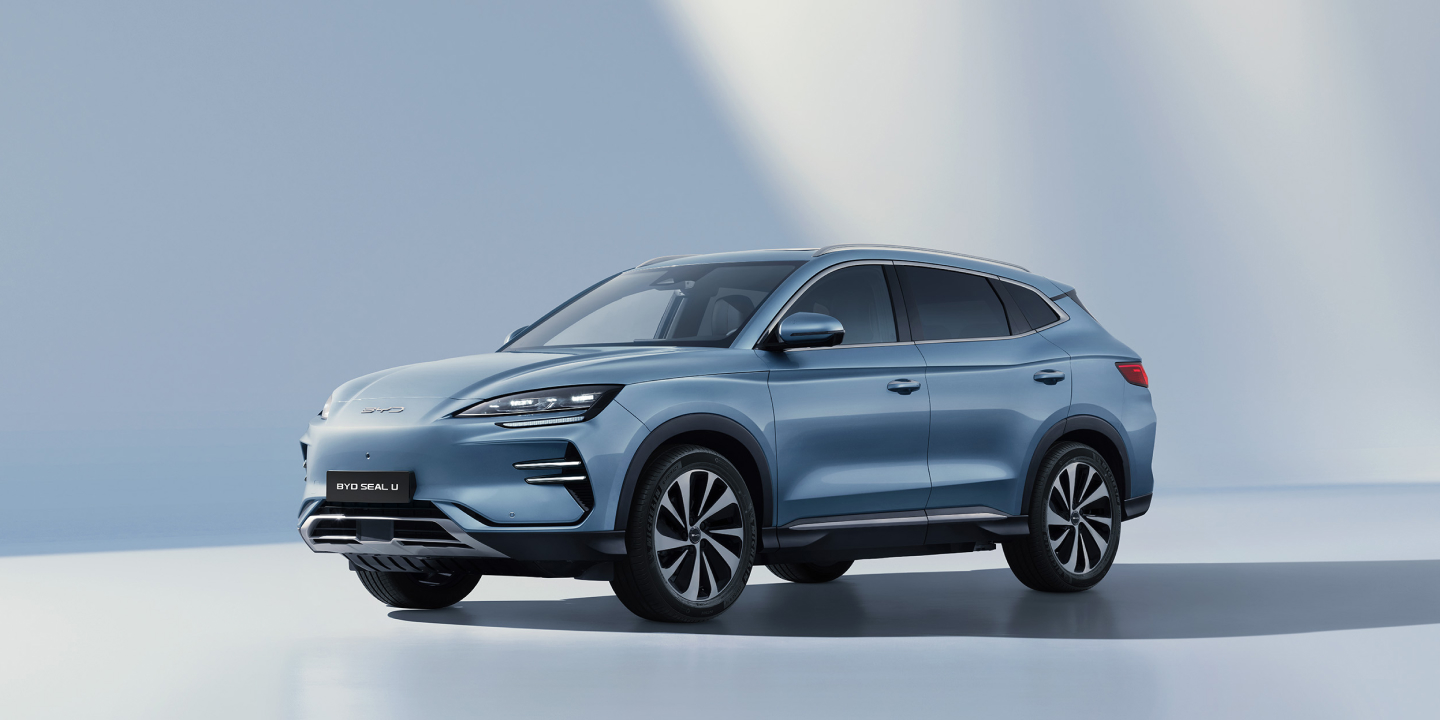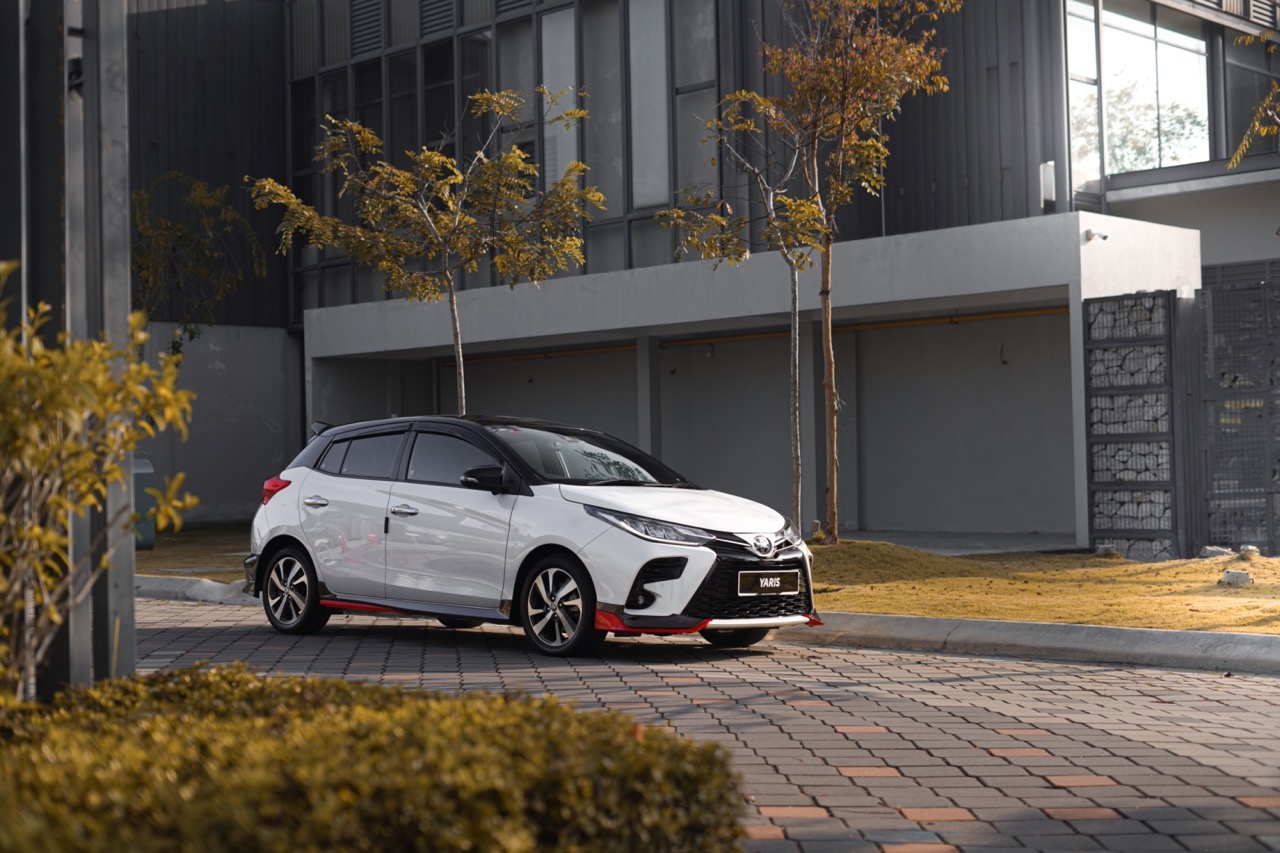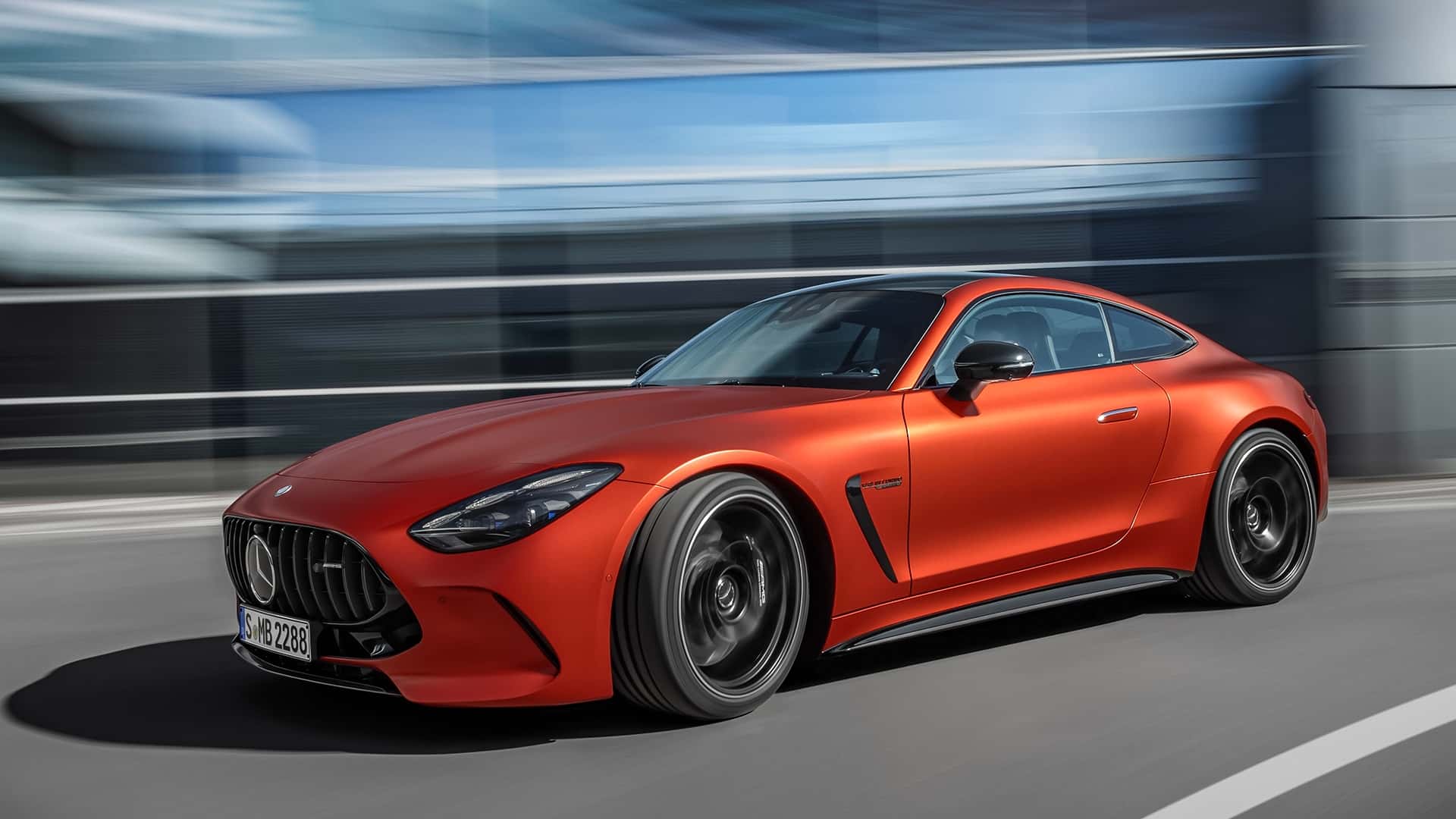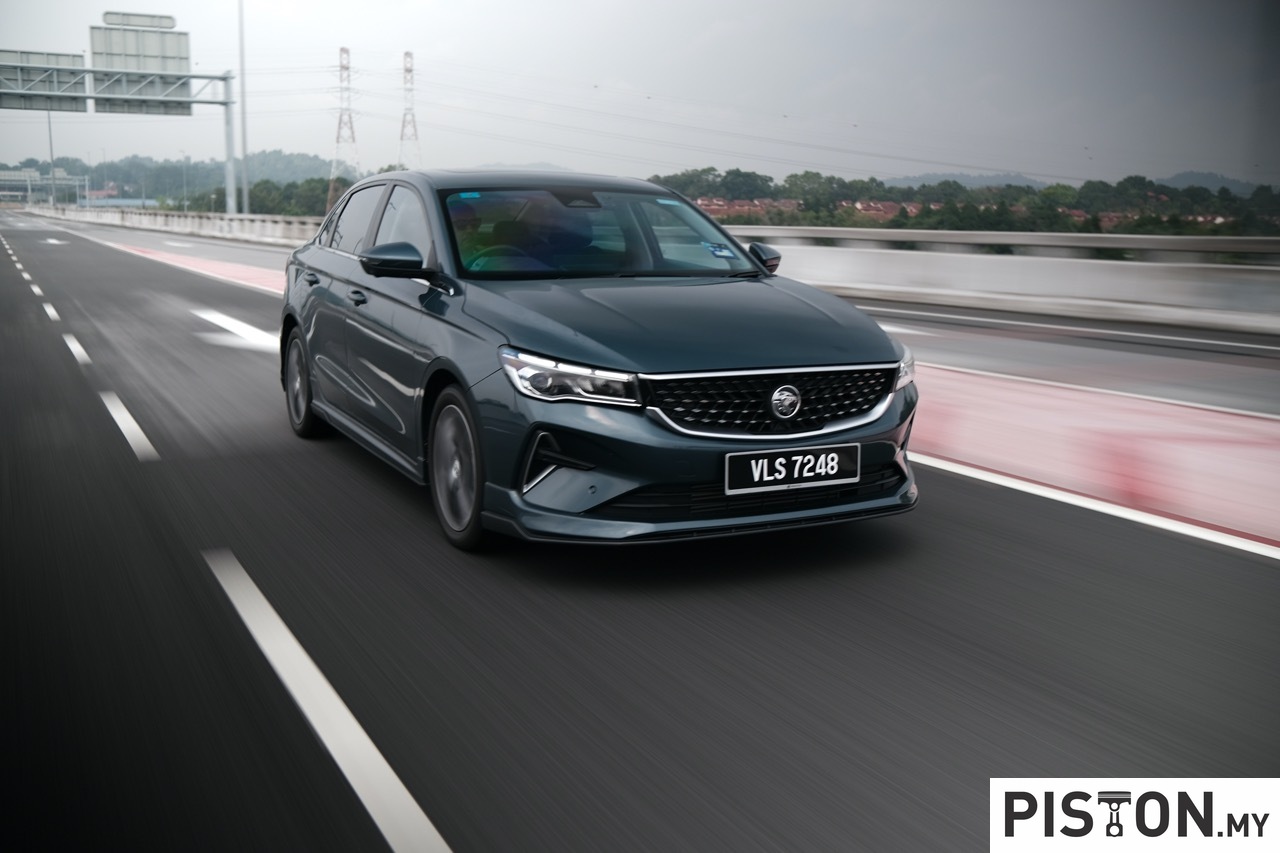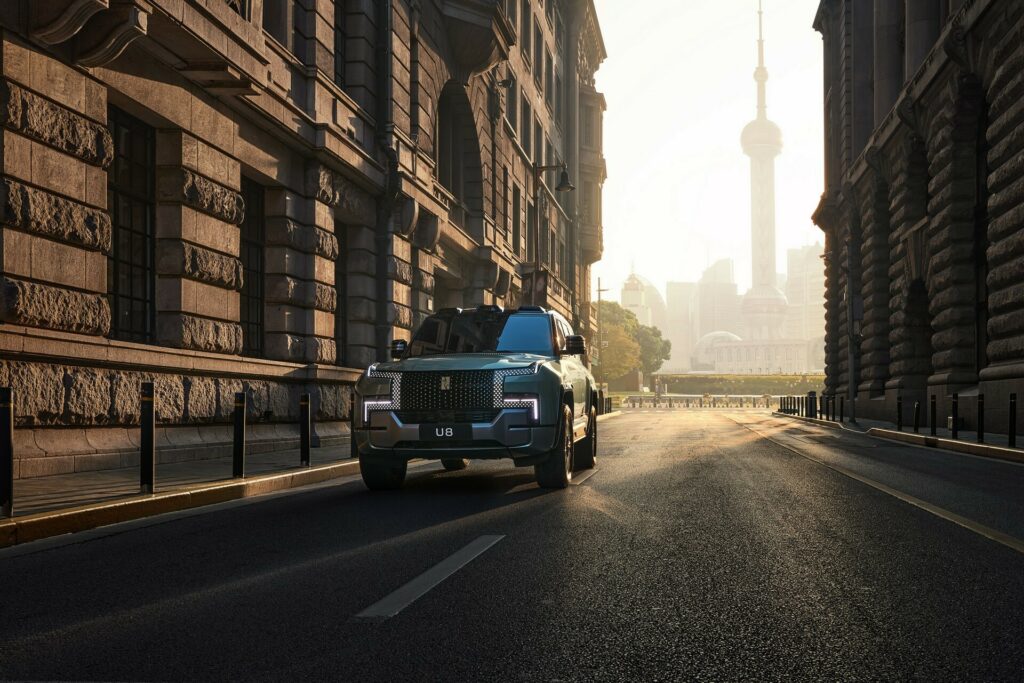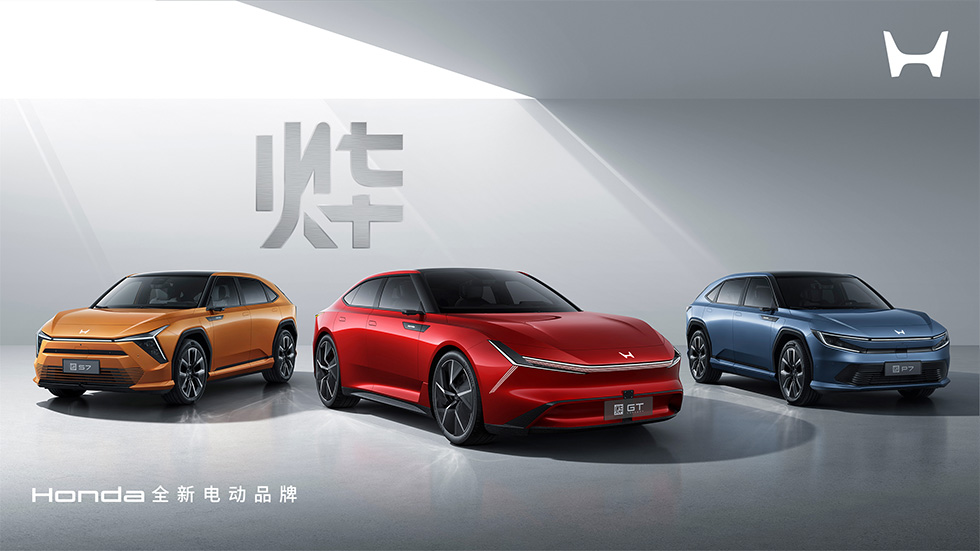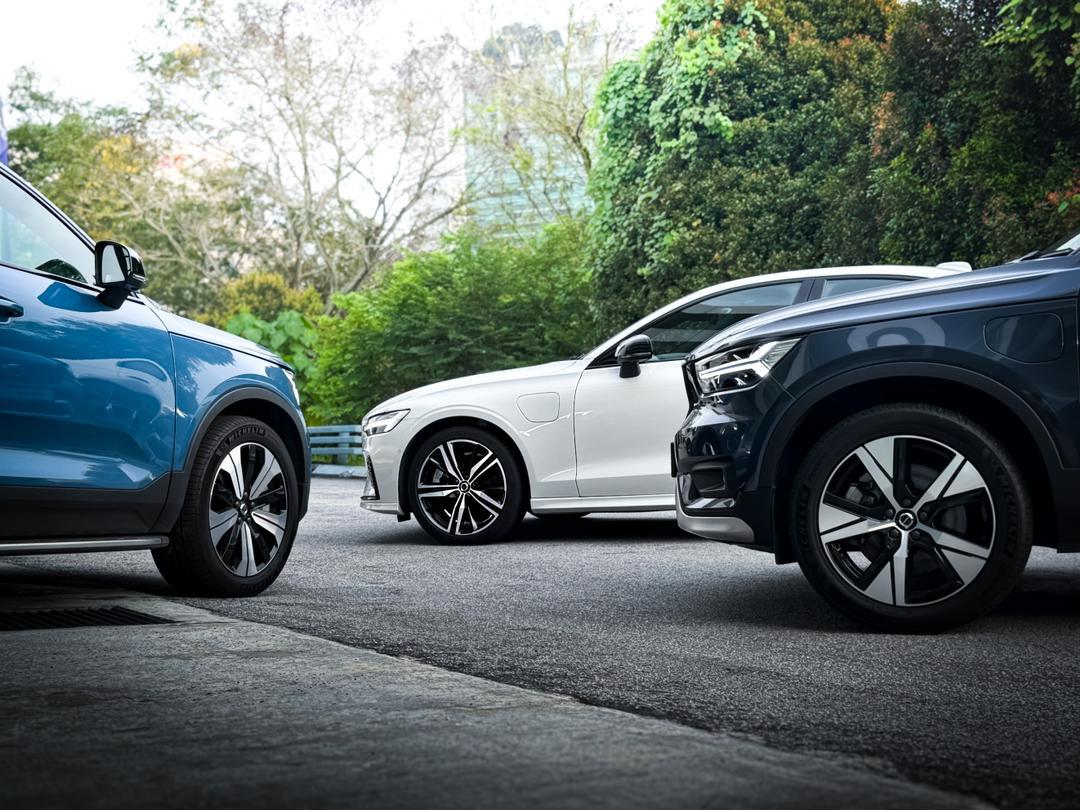‘Shape-shifter’ tends to be associated with something scary as it has often been used to describe beings that can transform into something else – usually mean and nasty – like those Terminators. However, the term also refers to anything that can alter its shape and EV tech start-up City Transformer has a shape-shifting microcar that is ideal for urban mobility.
Called the CT-1, it is the world’s first microcar that can change its wheelbase to suit different traffic conditions. It can become narrower for better manoeuvrability and easier parking, and wider for better stability when travelling at higher speeds.
City Transformer presents the CT-1 as the next chapter in sustainable and intelligent urban mobility. With its small footprint, it can address issues of congestion in inner cities without sacrificing key core attributes such as safety, comfort, and the fun-to-drive factor.
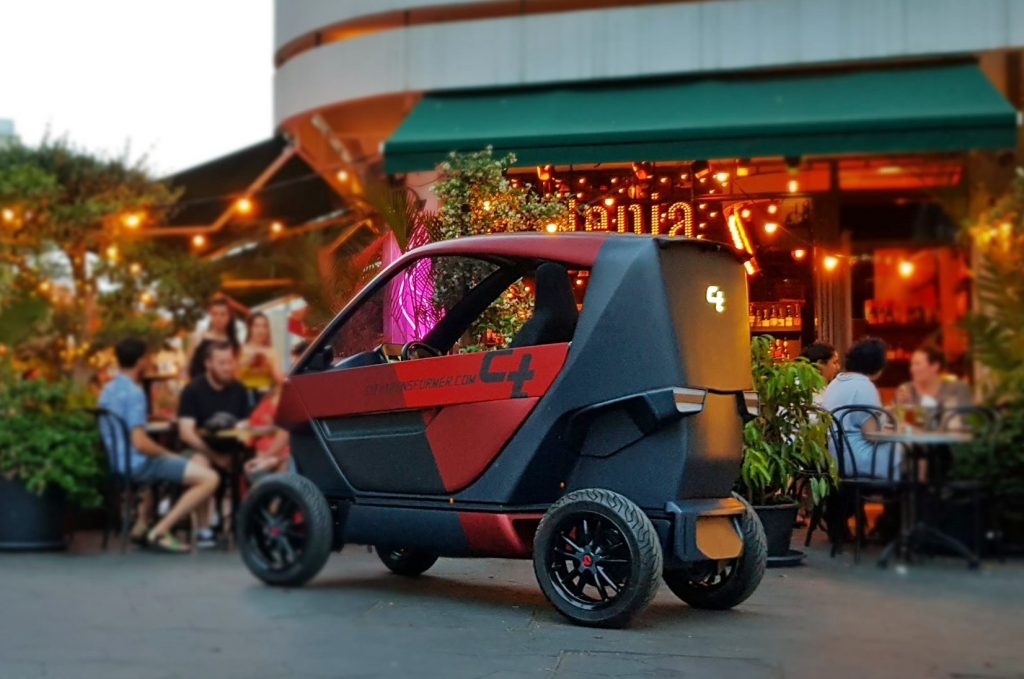
More importantly, it is a battery electric vehicle so there are zero emissions and virtually noiseless movement. Compared to 2-wheelers, it is a safer option as a 4-wheeler with the added protection of a sealed cabin.
“It’s time we re-think mobility,” said Udi Meridor, City Transformer’s COO. “The roads and avenues closer to the city centre suffer from chronic congestion and resulting pollution. And most of this traffic chaos is the result of larger vehicles being on the road with just one single occupant inside the cabin.”
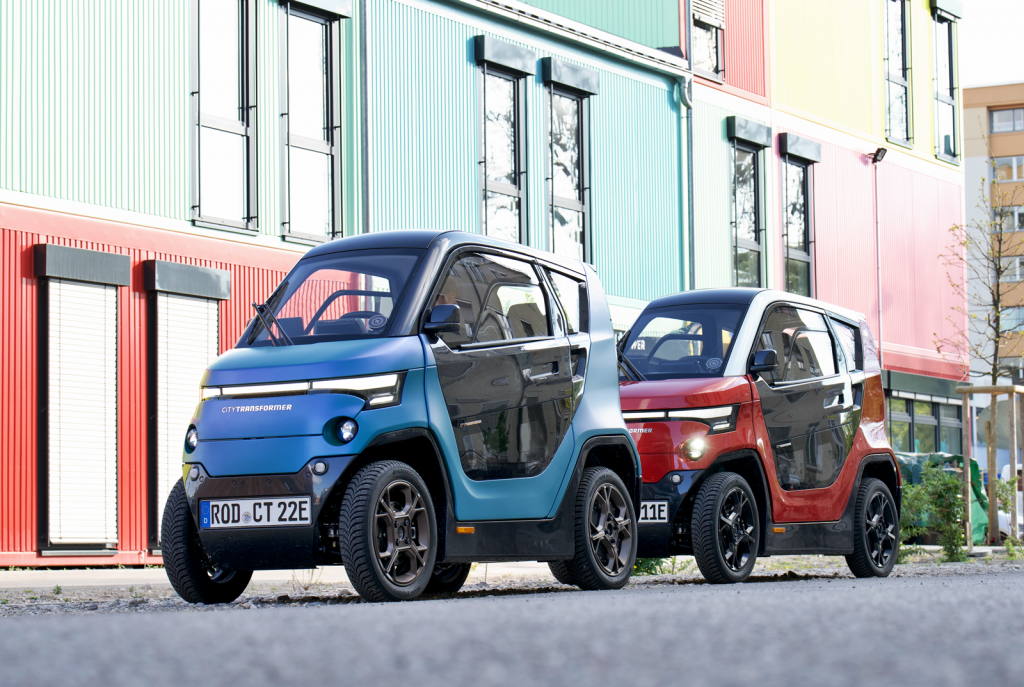
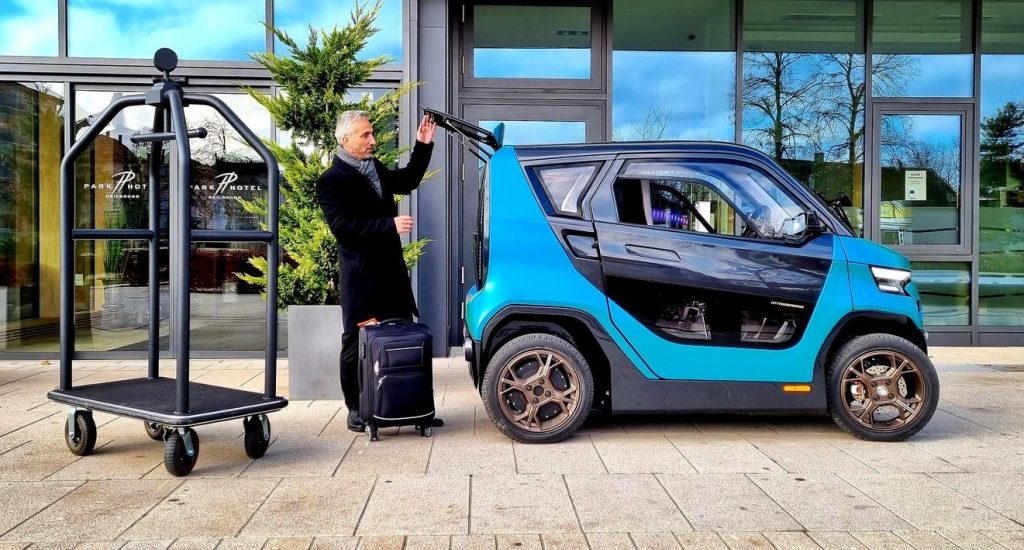
“There is no doubt that congestion is an overriding issue for megacities across the world. And this issue is getting more acute. Loss of time, loss of productivity, health problems, environmental damage – the list of negative effects of inner-city traffic chaos is overwhelming. But these challenges have helped to inspire the City Transformer team to develop a unique mobility solution specifically for the urban environment that makes daily transport leaner, cleaner, and far more efficient,” he said.
The CT-1 can intelligently adapt its dimensions and handling to the individual needs of the driver and the driving environment. The compact two-seater has been designed so that it can reduce its track width from 1.4 metres to 1 metre to allow it to manoeuvre into the smallest parking spaces. This unique wheelbase transformation can take place on the road in real-time.
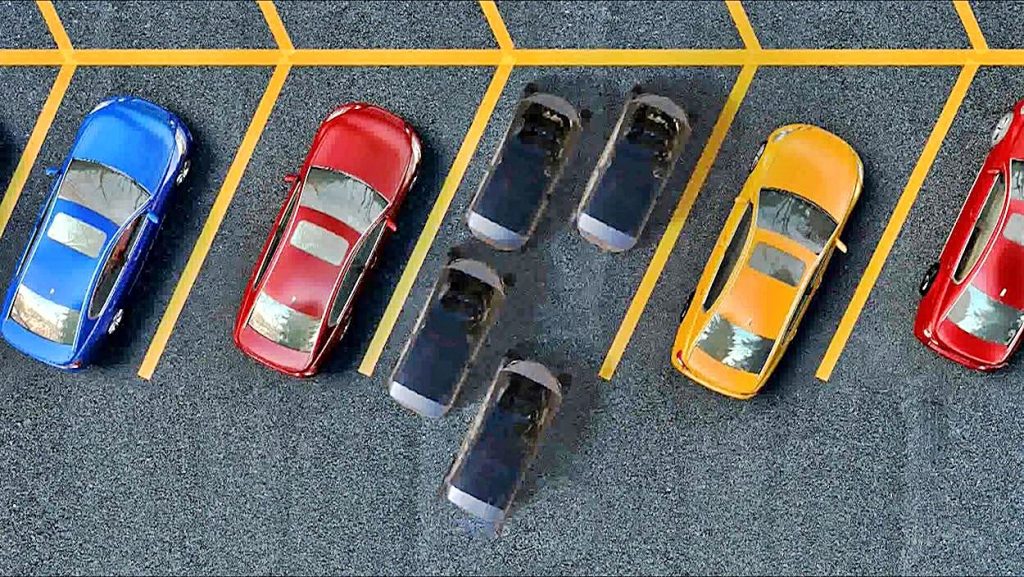
The CT-1 is built with City Transformer’s in-house developed and highly advanced modular skateboard architecture. Weighing just 590 kgs – including the battery pack which is 80% smaller in mass compared with most other standard EV batteries on the market today – the CT-1 offers a claimed 180 kms real-world zero-emissions driving range. The time it takes to do a weekly shopping trip for the family – less than an hour – is also enough to recharge the battery pack from 10% to 80%.
Part of its original design objective was for the CT-1 to have a reduced number of parts, components, and subsystems compared with conventional vehicles. In terms of a direct comparison with an internal combustion (ICE) vehicle and an electric vehicle (EV), the CT-1 cuts the number of parts needed from around 25,000 (ICE) and 8,000 (EV) to just 1,500 (CT-1).
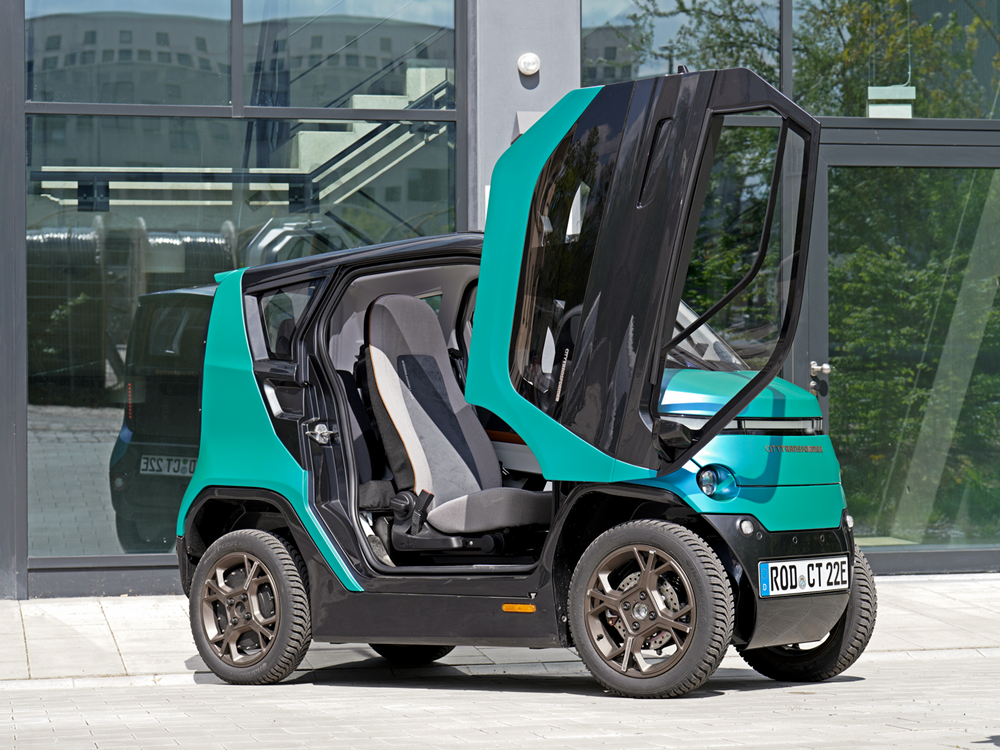
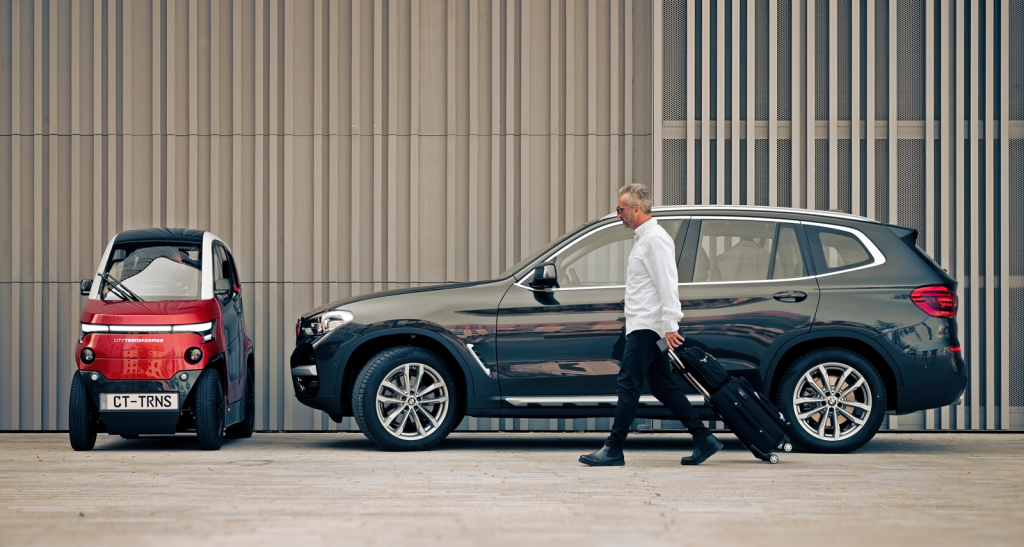
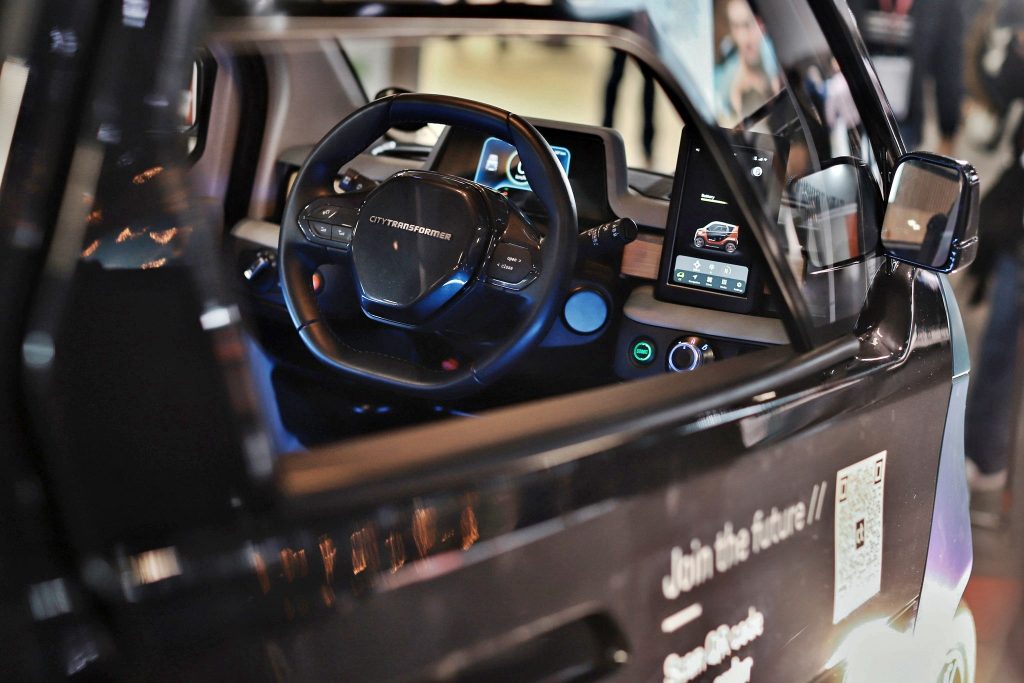
The 2.5-metre long CT-1 combines the advantages of a motorcycle with those of a car to create a unique overall mobility solution, without the inherent design-related disadvantages of more traditional polluting vehicles that currently make up the urban mobility landscape.
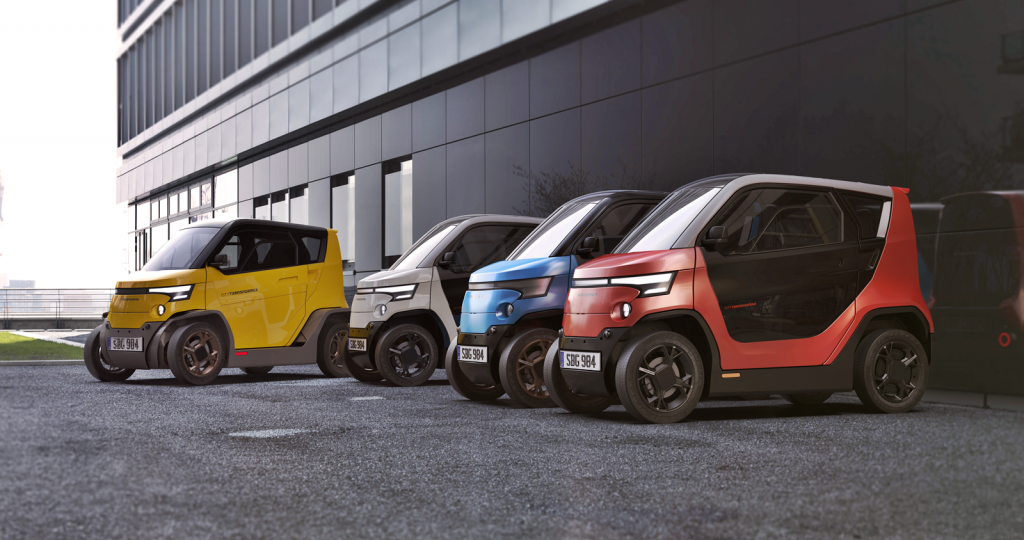
Further increasing its adaptability for cities, the CT-1 has been carefully developed to enable shared use. It therefore will come as standard with intelligent sharing, fleet management, usage optimisation, and personalisation functions that are accessible via an intuitive digital interface. Designed to be activated via mobile apps, the CT-1 can be personalised and customised by customers via City Transformers’ own cloud-based sharing and management services, as well as being integrated into an existing fleet management infrastructure.
The CT-1 is scheduled to enter production in 2024 but City Transformers is taking pre-orders with a refundable €150 (RM710) deposit. When it goes on sale, the company expects the price to be €16,000 (about RM76,000) ex-factory.
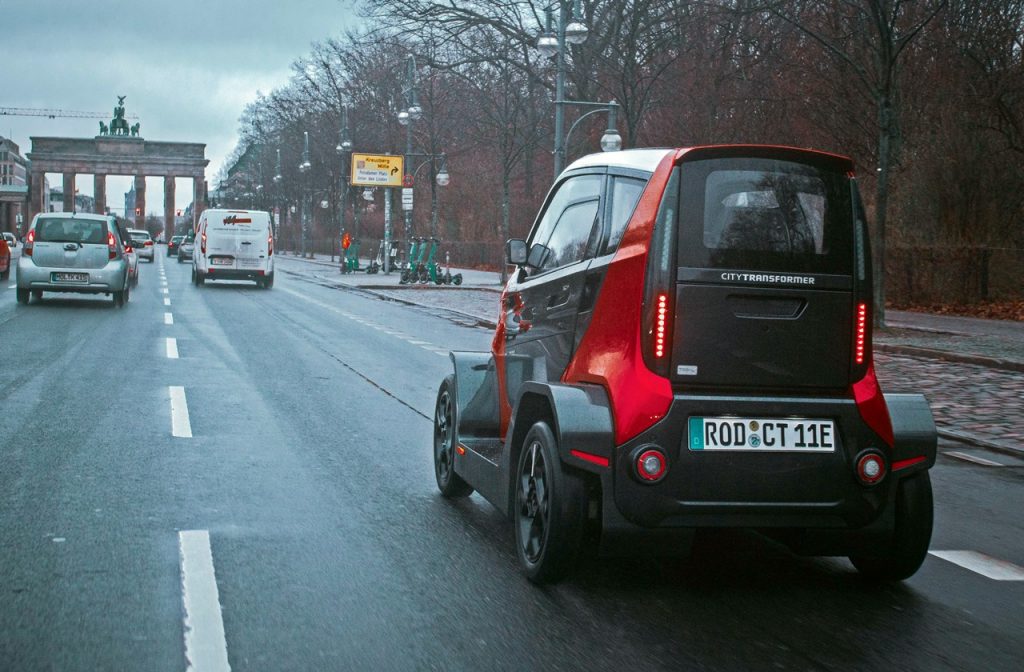
While such microcars may make sense, getting Malaysians to buy them will be difficult as they have only two seats. Motorcycles would still be cheaper, and even a small car like a Perodua Axia would be able to take at least 4 persons. The only way such vehicles can be popularised so they are worth selling is to ban conventional motor vehicles from the city. However, that can only be done when there is a really efficient public transport service.


